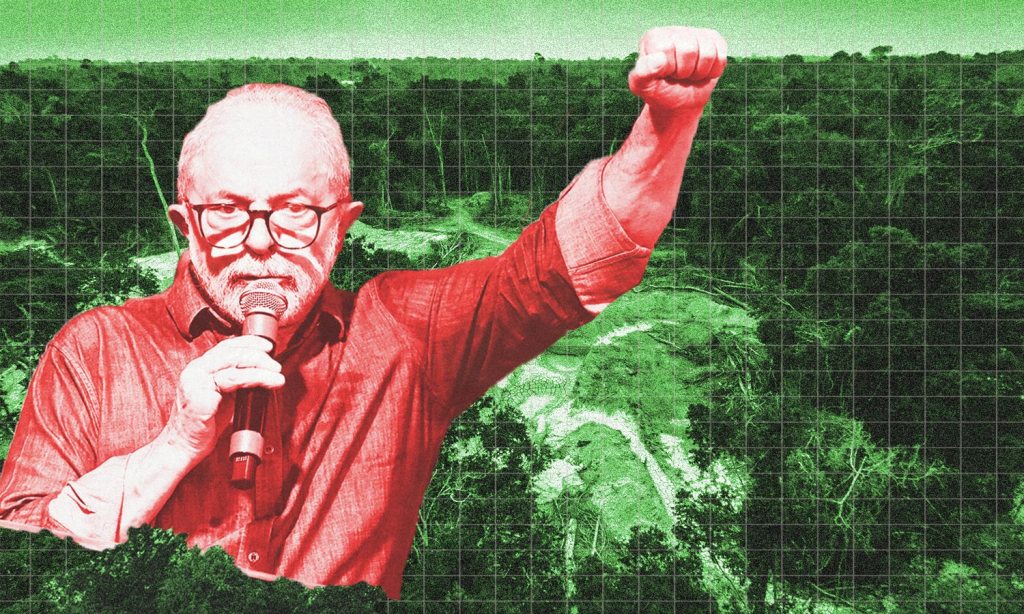In 2019, we had Donald Trump, Boris Johnson, Scott Morrison, and Jair Bolsonaro in power. Now, three years later, the global political landscape looks very different as all four right-wing leaders have been ousted.
The latest of these, Bolsonaro, has become a one-term President in Brazil after losing with a narrow minority to former President Luiz Inacio ‘Lula’ da Silva. Although Bolsonaro was uncharacteristically silent after the election, prompting fears of a coup attempt, he has now authorised the transition of power to the left-wing head of the Workers Party.
Brazil, in case you weren’t aware, is home to the Amazon rainforest. It remains the largest rainforest on the planet, despite ongoing efforts to cut it down, and contains half of the rainforest environments on Earth. Described as the ‘lungs of the planet’, what happens in Brazil, whose territory occupies 60% of the forest, matters for the rest of the planet and our efforts to combat climate change.
Under Bolsonaro, the Amazon was faced with all-out assault. Illegal mining was rampant, logging increased, and wildfires raged, all of which are thought largely to have been emboldened by the President’s pro-industrial policies to clear the land and develop the region.
Lula’s win has been hailed a victory for the Amazon, biodiversity protection, and climate action. On the campaign, he made promises to safeguard the forest, which scientists are concerned is nearing an ecological tipping point after years of accelerated logging.
“Let’s fight for zero deforestation. The planet needs the Amazon alive,” Lula said in his victory speech. A standing tree is worth more than tons of wood illegally harvested by those who think only of easy profit.”
He has pledged to reverse many of the policies of the previous government, including the restarting of surveillance and monitoring of the Amazon, stopping the burning of Indigenous lands, and putting a halt to illegal mining and logging in the region.
If Lula follows through on these promises, it could be a serious win for climate action. But how far gone is the rainforest and what chances does he really have of reviving it? Here’s what you need to know.
Is It Too Late for the Amazon Rainforest?
Stopping deforestation is one of the key policies called for by the United Nations if we are to slow the effects of climate change. Rainforests not only offer habitat for unique species and ancestral homes to Indigenous peoples but suck carbon out of the atmosphere at a tremendous rate.
The Amazon absorbs 1.5 billion tonnes of carbon dioxide each year, roughly 4% of global emissions, although since 2016 it has been emitting more than it has been absorbing. With 17% of the rainforest now lost, scientists are warning that if that figure gets to 20-25%, the Amazon could become a desert. If that happens, we would have very little hope of keeping climate change below tolerable levels.
Lula, who was President of Brazil from 2003 to 2011, oversaw a dramatic decline in deforestation of the Amazon during his time in office. In 2004, roughly 28,000 square kilometres were cut down, but by 2012, that number had dropped to just 4,600.
Under the former leader, Bolsonaro, deforestation spiked by 52%, with an estimated 34,000 square kilometres cut down. That doesn’t include forest lost to fires, either.
Lula’s incoming administration is keen to reverse this trend and restore many of the protections to the region cut under Bolsonaro. Marina Silva, expected to take over the role of environment minister after the January handover, has paid tribute to journalists and activists murdered in their fight to protect the rainforest and said that she will honour their memory by safeguarding the Amazon.
According to analysis by the organisation Carbon Brief, Lula’s Presidency could see deforestation in the Amazon drop by 89% – saving some 75,960 square kilometres of forest by 2030. If that happened, the Amazon could become a net-carbon sink again by 2040.
Experts are divided on whether Lula really could save the Amazon, however, Australian National University biology and conservation professor David Lindenmayer does believe the new President could “turn things around.”
It will take serious international cooperation to protect what’s left and restore what’s been lost. With the next UN Conference of the Parties just days away, the world will be expecting Lula to make some big promises as he has previously said he wants to make Brazil a global climate leader.
Other nations appear ready to stand with him. Colombia’s President, Gustavo Petro, has already pledged to work with Lula and other South American leaders to combat deforestation. Colombia’s territory spans almost 10% of the Amazon.
Norway too has stepped up, announcing that their billion-dollar Amazon Fund will be reactivated following Lula’s electoral win. The fund, which is designed to help Amazonian countries defend against deforestation, was suspended after repeated clashes with the Bolsonaro government.
Marcio Astrini, the head of an umbrella group of NGOs called the Climate Observatory, has said that no one politician can change the fate of the Amazon, but that Lula’s promises have been heartening.
“You need to start somewhere,” Astrini told The Guardian.
“The next four years are going to be a window of opportunity for us to recover that which has been ruined. I believe he is genuinely really convinced that the environmental agenda is something that needs to be treated as a priority in his government.”
Related: Climate Change Is Triggering a Global Collapse in Insect Numbers — Here’s How You Can Stop It
Related: Everything You Need to Know That Happened at COP26
Read more stories from The Latch and subscribe to our email newsletter.

